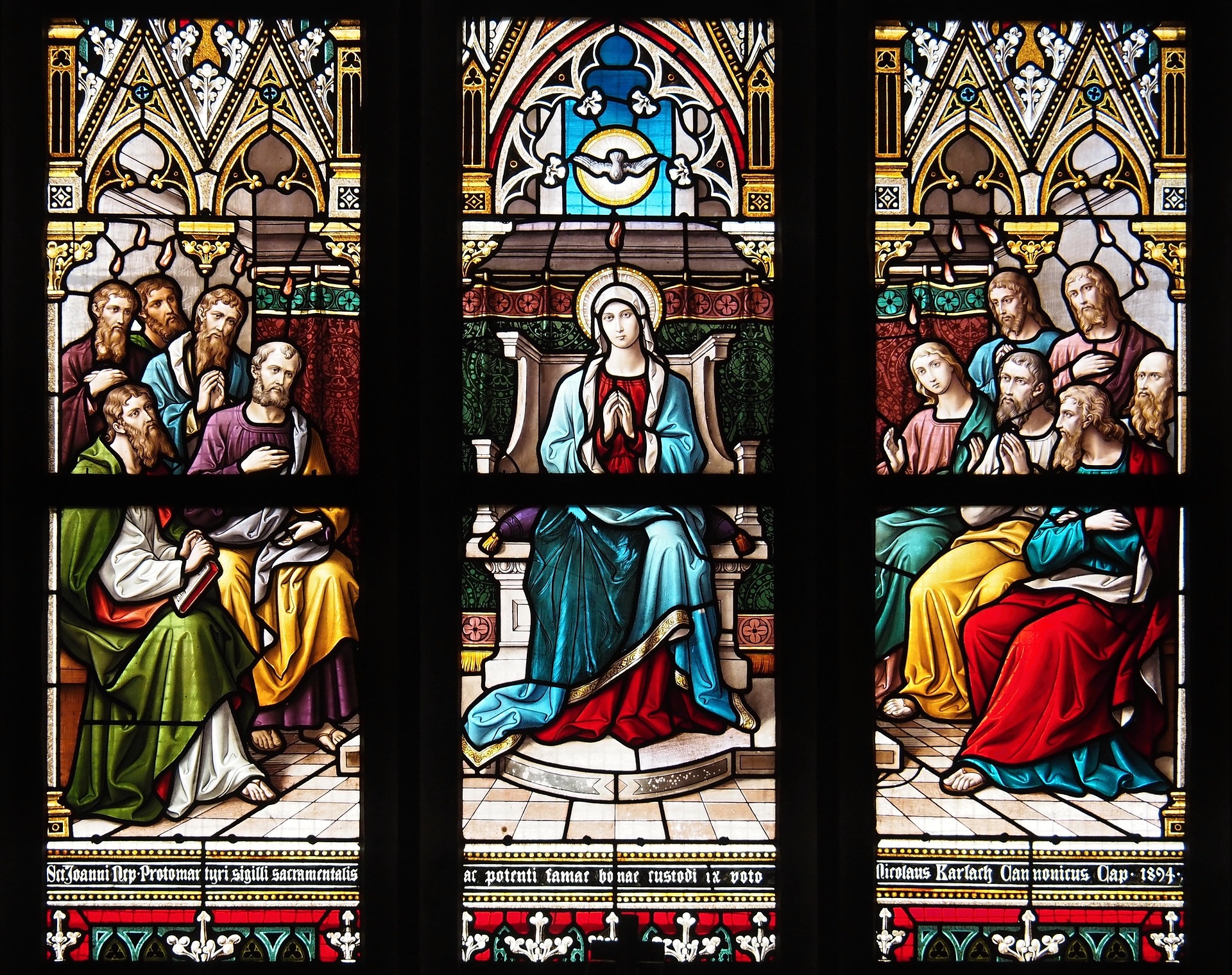And They Were All Filled With The Holy Spirit
While Scripture does not explicitly use the word “Trinity,” the three persons of the Trinity are mentioned many times in the Bible beginning in Genesis. (“Let us make man in our image”)[1] Father is Creator. The second person, The Word, is given the name Jesus at the Incarnation. The Father creates through The Son, The Word.[2] The Holy Spirit is referred to as the Spirit of God[3] and the Breath of Life.[4] “The Word of God and His Breath are at the origin of being and life of every creature.”[5] The Holy Spirit “animates creation.”[6]
While many of the Israelites did not comprehend that there was a mystery of God as Trinity, some of them did have some sense of it. Abraham saw God as three persons. David and Isaiah both speak of the Spirit of God. The Blessed Virgin Mary, who wanted to know exactly what she must do to fulfill God’s Will, asked how she would conceive a child but never asked the Angel Gabriel who the Holy Spirit was because She already knew Him.
The disciples, having spent three years with Jesus, have some idea of the mystery. Peter experienced the gift of knowledge when he proclaimed, “You are the Christ, the Son of the Living God.”[7] The disciples experienced the charismatic gift of healing when Jesus sent them out two by two, giving them the gift of casting out unclean spirits. [8]They have yet to be baptized by the Spirit, and so have a ministry marked by backward and forward steps, asking Jesus to destroy towns that don’t receive Him[9] and even deserting Jesus at the Cross.
It is at Pentecost that they all become transformed as the Holy Spirit visibly pours out all His gifts. No longer cowering in fear, they courageously proclaim the truth in love. The Crucifixion saved us from the penalty of our sins. The Resurrection opened the gates of Heaven for us. Christ’s final act, the sending of His Holy Spirit, is the gift through which we can live heaven on earth and fulfill the prayer He taught us.[10] It is His Holy Spirit who completes the final gift of love – the birth of the Church. The Sacraments of the Church make us Children of God and restore our communion with Him. The gifts of the Spirit are given so that we may continue Christ’s mission to carry His Good News to the ends of the earth.
Through the Holy Spirit we are restored to paradise, led back to the Kingdom of heaven, and adopted as children, given confidence to call God “Father” and to share in Christ’s grace, called children of light and given a share in eternal glory.[11]
We are the Apostles of these times. We were chosen by God to live in these times and we too have a special mission to witness the faith. Jesus promised us that the Holy Spirit would always be with us. Sometimes we are called to use our talents for God, but most of the time, we are called because of our weaknesses. It is when we are weak that we know we need to ask for His help. It is when we are weak that we know that it is God acting through us and not our own “wonderfulness” that is accomplishing the work. It is through the training of depending on God when we know what we cannot accomplish that teaches us to depend on Him in all things and praise His Goodness at all times. It is the continual search to do His Will and His Work that will bring to fruition “Thy Kingdom Come, Thy Will Be Done on earth as it is in Heaven.” When we put this into practice in our own lives then we will have true peace and live in the freedom and love that God has always intended for us.
[1] Gn 1:26
[2] Jn 1:1-3 and “God said” Gn 1
[3] Gn 1:1
[4] Gn 1:30
[5] Catechism of the Catholic Church (CCC) paragraph 703, Gn 1:2, 2:7; Eccl 3:20-21; Ezek 37;10
[6] CCC 703
[7] Mt 16:16
[8] Mk 6:7
[9] Lk 9:54
[10] Lk 11:2
[11] CCC 736 (St. Basil, De Spiritu Santco, 15, 36: PG 32,132.)





